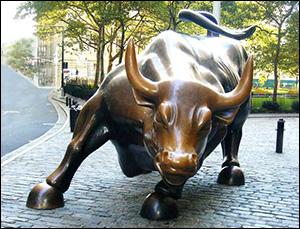By Pam Martens and Russ Martens: October 23, 2017
Over the past month, with little media attention, both Citigroup and Merrill Lynch have received fines from regulatory bodies for failure to properly report their trading in derivatives – an opaque trading arena that played a significant role in bringing down both firms during the financial crisis. As reported by the Government Accountability Office (GAO) in 2011, Citigroup received $2.5 trillion in cumulative, secret low cost loans from the Federal Reserve during the 2007-2010 financial crisis while Merrill received $1.9 trillion. These loans, many at almost zero interest rates, were made without the authorization or awareness of Congress. (See GAO chart below.) The loans to the two firms were on top of the publicly disclosed and Congress-approved TARP bailout funds.
Significant portions of the money loaned to Citigroup and Merrill Lynch were authorized by the Federal Reserve to be funneled to the broker-dealer subsidiaries of the firms in London – where it found its way into pursuits that remain undisclosed to this day. The GAO noted in its report:
“…without more complete documentation, how assistance to these broker-dealer subsidiaries satisfied the statutory requirements for using this authority remains unclear. Moreover, without more complete public disclosure of the basis for these actions, these decisions may not be subject to an appropriate level of transparency and accountability.”
Derivative losses in the tens of billions of dollars were a major contributor to the financial crisis of 2007-2010. Wall Street banks had used the same counterparty for many of their derivative trades, firms like AIG and Lehman Brothers, who lacked the money to make good on the trades. AIG received a $185 billion bailout from the taxpayer with about half of that money going to pay Wall Street banks for their derivative trades and other exposure to the banks. Lehman filed bankruptcy, leading to panic and contagion on Wall Street.
Because of the central role that derivatives played in the Wall Street crisis, which led to the worst U.S. economic downturn since the Great Depression, the Dodd-Frank financial reform legislation that was passed in 2010 was supposed to prevent insured depository banks from holding dangerous levels of derivatives. Known as the “push out rule,” where derivatives would be pushed out of the insured banks, before that rule ever had a chance to take effect, Citigroup engineered its repeal.
On September 25, the Commodity Futures Trading Commission (CFTC) fined Citigroup $550,000 for failing to properly report derivative trades. One of the violations was defined as follows: “…Citi violated its reporting obligations by reporting ‘Name Withheld’ as the counterparty identifier for tens of thousands of swaps with counterparties in certain foreign jurisdictions.”
Today, for the second time in two years, the Financial Conduct Authority in the U.K. has fined Merrill Lynch (which was taken over by Bank of America during the financial crisis in 2008) for failure to properly report its derivative trades. Today’s action resulted in a fine of £34,524,000 over Merrill’s failure “to report 68.5 million exchange traded derivative transactions between 12 February 2014 and 6 February 2016.”
One of the most dangerous risks facing U.S. citizens is that they will succumb to Wall Street corruption-fatigue and allow these mega banks to plot their next plunder behind a dark curtain. Clearly, U.S. corporate media has already succumbed.



